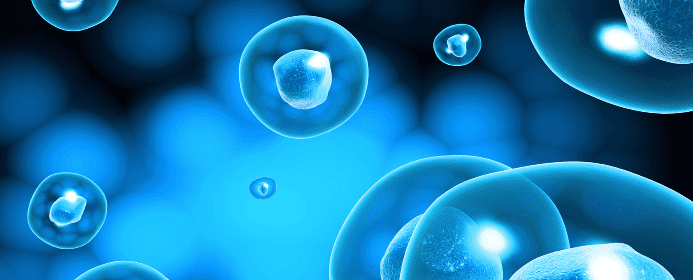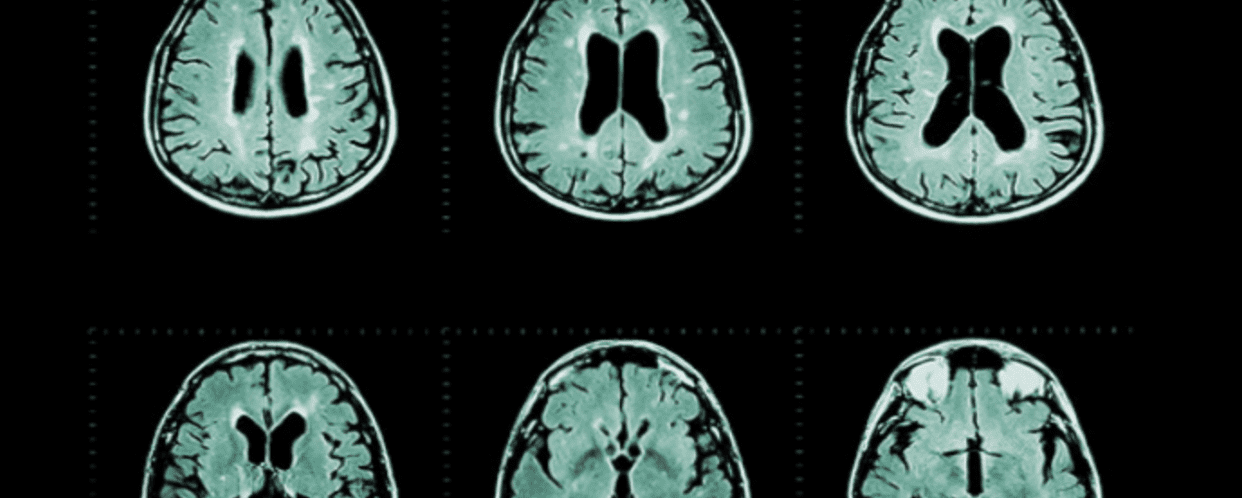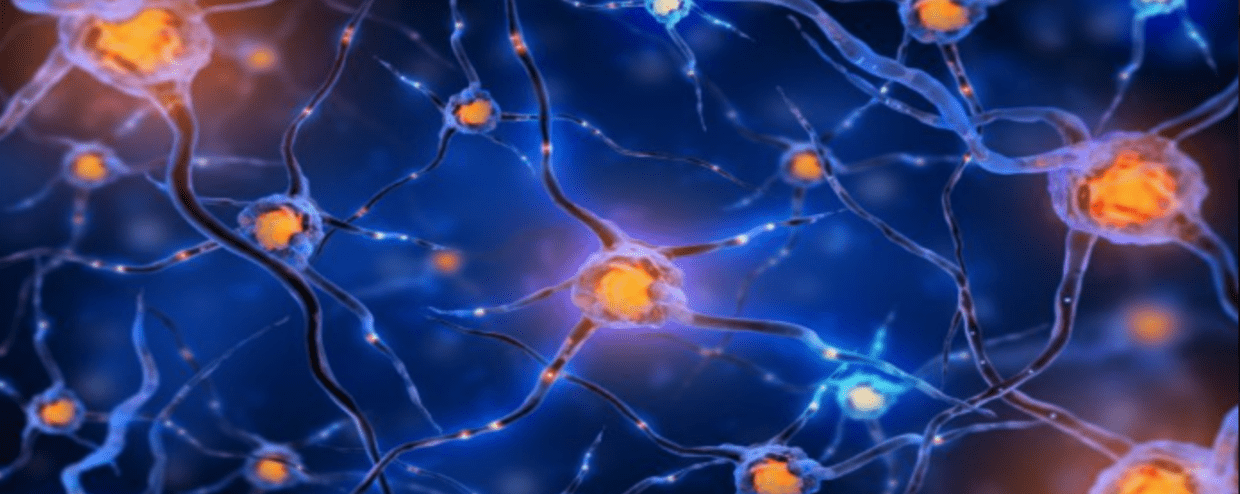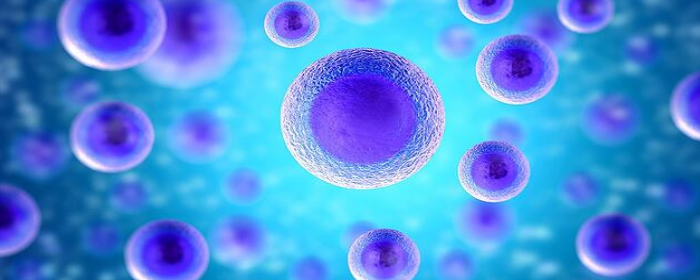
by admin | Dec 26, 2020 | Multiple Sclerosis, Mesenchymal Stem Cells, Stem Cell Research, Stem Cell Therapy
A recent open-label, single-arm, phase 1 clinical trial designed to evaluate the safety and tolerability of repeated intrathecal (IT) administration of autologous mesenchymal stem cells (MSCs) from bone marrow in patients with progressive multiple sclerosis demonstrated findings and benefits resulting in the initiation of an FDA-approved randomized, placebo-controlled and blinded phase II large group study to demine further efficacy of this procedure.
Multiple sclerosis, or MS, is a progressive condition where the body’s immune system attacks myelin, the protective sheath covering the nerves of the central nervous system, resulting in debilitating communication problems between the brain and the rest of the body.
While the specific cause of MS has yet to be determined, the disease itself is characterized by specific areas of inflammatory CNS demyelination that either regenerates or progresses into a chronic condition with accompanying loss of neurons, neuroglial cells, and glial scarring.
Roughly 10% to 15% of MS patients experience progressive symptoms from the onset of the disease, including motor weakness, paralysis, sensory dysfunction, loss of coordination, and cognitive decline.
Although there are immunosuppressive and immunomodulatory therapies that serve to slow the progression of MS, therapeutics designed to protect, repair, or regenerate neural tissue as a way of restoring neurological function do not currently exist. Considering that, mesenchymal stem cells gathered from bone marrow have demonstrated the ability to promote tissue repair through the secretion of paracrine factors.
Study Design and Findings
The treatment phase of this phase 1 trial, conducted at Tisch MS Research Center of New York, involved select participants with progressive MS receiving three separate IT injections of autologous mesenchymal stem cell-defined neural progenitors (MSC-NPs) spaced three months apart; each participant was then assessed the day of treatment, then the day, week, and month following each administration. As part of the post-treatment assessment, participants were assessed again three and six-month after receiving the third dose.
Analyzing the results of this study, researchers found no serious adverse effects or hospitalizations associated with this IT MSC-NP treatment; this included no specific incidents of chemical or infectious meningitis.
Brain MRI scans gathered during the course of this study demonstrated no changes and specifically were characterized by the absence of new or additional T2 lesions or related progressions associated with the patient’s MS. These findings led researchers to conclude that multiple IT administrations of MSC-NP’s are safe in the short-term and well-tolerated in participants with progressive MS.
Over the course of the study, all participants were strictly monitored for changes associated with clinical status. Assessment information gathered at the three and six-month post-treatment marks demonstrated that 75% of the subjects in this study demonstrated specific neurological improvement associated with this IT MSC-NP treatment when compared to established benchmarks, including neurological improvement associate with:
- Expanded disability status scale (EDSS)
- Timed 25-ft walk (T25FW)
- MRC muscle strength scale
- Bladder function
Key findings and observations contributing to this study include previous studies of experimental autoimmune encephalomyelitis (EAE) animal models of MS led to the experimental design of this study including multiple dosing of MSC-NPs (as opposed to single dosing).
When constructing this research study, researchers also determined that the intrathecal route of administration for cell delivery was important. While previous research has demonstrated administering bone marrow MSCs intravenously has proven to suppress EAE through immune response, intravenous administration has not demonstrated to cross the blood-brain barrier in amounts sufficient to directly impact and/or benefit the CNS; the IT route of administration appears to maximize the therapeutic potential to benefit the CNS and spinal cord.
This study concluded that IT therapy with MSC-NPS is safe and well-tolerated in patients with progressive MS and demonstrated a number of neurological benefits. As a result of this phase 1 trial, an initiation of FDA-approved randomized, placebo-controlled, and blinded phase II study in a larger group study to better determine efficacy in patients with progressive MS.
Reference: (n.d.). Phase I Trial of Intrathecal Mesenchymal Stem Cell-derived …. Retrieved January 19, 2021, from https://www.sciencedirect.com/science/article/pii/S2352396418300513

by Stemedix | Dec 21, 2020 | Multiple Sclerosis
Receiving a diagnosis of multiple sclerosis (MS) is understandably overwhelming. Fortunately, life with MS today is far different than it once was, thanks to several new treatment methods that help patients manage symptoms effectively. If you have been newly diagnosed with MS, here’s what you can do to cope with your diagnosis and stay in control of your health.
Learn as Much as You Can
The uncertainty can be among the most difficult aspects of being newly diagnosed. The more you know about MS, the better prepared you’ll be for any changes you experience.
Multiple Sclerosis is a chronic inflammatory disease in which the immune system attacks the myelin, or protective coating around the nerve fibers throughout the spinal cord and brain. As the myelin is destroyed and replaced by scar tissue, many symptoms involving the central nervous system develop.
With that said, it’s possible to maintain a good quality of life with MS, and the condition is almost never fatal. Organizations like the National Multiple Sclerosis Society (NMSS) have many resources to help you learn more.
Pursue a Definitive Diagnosis
Due to the broad spectrum of symptoms—many of which can mimic other conditions—MS can be challenging to diagnose. Moreover, there is no single test that can definitively diagnose MS; instead, data from several tests are often needed, including an MRI, neurological assessment, and spinal tap.
A doctor must rule out any other possible conditions and find evidence of damage in two distinct areas of the central nervous system which have occurred at least a month apart for a firm diagnosis. This step is important, as it will allow you to pursue the proper channels for treatment.
Understand the Nature of MS Symptoms
MS symptoms can span far and wide and be unpredictable in nature. Your MS may not look the same as someone else’s. Common symptoms include pain or tingling, slurred speech, fatigue, dizziness, memory issues, and vision changes, among others. You may find that some symptoms are only temporary, while others last longer.
Seek Prompt Treatment
The type of treatment you pursue will depend on the severity of your symptoms and your current overall condition. With that being said, many doctors recommend starting treatment right away, as some therapies may delay the progression of the disease and reduce symptom severity.
Track Symptoms & Triggers
While symptoms can be unpredictable, tracking them is important to help your healthcare team determine whether treatments are working as they should. Newly diagnosed patients can benefit from starting a daily journal of their symptoms. You might also jot down notes about the day’s conditions, which could help to pinpoint triggers. For instance, some people find that stress, heat, and infection can lead to flare-ups or relapses.
Partner with the Right Doctor
It’s important to find the right specialist to help you treat your MS, being that it’s a lifelong condition. Your doctor should welcome any questions you have, help you understand your treatment options, and make you feel comfortable. The NMSS website offers a database of doctors who specialize in MS so you can choose one who’s local to you.
Explore Alternative Medicine
While medications are an important part of controlling the symptoms and progression of MS, you might also want to try complementary or alternative medicine. For example, some patients find relief with non-drug treatments such as supplements, acupuncture, and massage. The NMSS is also advocating for research in innovative therapies such as stem cell therapy to further alleviate symptoms and prevent disease progression, with the potential to even repair some tissue damage that has already occurred. If you are interested in learning more contact a care coordinator today for a free assessment!

by admin | Nov 19, 2020 | Multiple Sclerosis, Health Awareness
While heat sensitivity in people with multiple sclerosis (MS) has been widely studied, the question of how cold weather affects patients still looms large. It was back in 1890 when optical issues (a common issue associated with MS) were linked to a rise in body temperature. More than a century later, MS patients still struggle to stay cool in the summer. As cooler weather approaches, however, the impending chill presents its own set of challenges.
Of course, winter introduces health issues even in people who aren’t affected by MS. Shorter days and increased darkness impact sleep patterns, which can ultimately lead to fatigue. Seasonal depression is also a common issue that emerges once the winter months descend.
Unfortunately, it appears that cold weather exacerbates MS symptoms. Specifically, pain, mobility challenges, fatigue, and depression seem to worsen. For one, the nerve damage caused by MS may be impacted by the winter weather, leading to spasticity and stiffness. Icy surfaces can also increase the risk of falls, making mobility challenges even more of a concern.
The “MS hug,” a feeling of pressure around the torso, becomes more pronounced for many patients in colder temperatures. Numbness and tingling may also worsen. Patients who experience Reynaud’s phenomenon, in which the blood vessels in the extremities narrow and cause discomfort, also report increased intensity in the winter.
Although there is still limited research on how cold weather impacts MS and why patients can still take certain measures to control symptoms throughout the winter months. Dressing in plenty of warm layers, eating warm foods, minimizing trips outdoors, and maintaining a moderate indoor temperature to reduce the shock when you do have to trek outside may help.
You might also consider discussing a supplement regimen with your specialist. Vitamin D levels often drop with decreased exposure to sunlight, so taking a daily vitamin could help to boost overall health and provide some relief for cold-related MS symptoms. Call a Stemedix Care Coordinator at 800-531-0831 and learn how our practitioner-grade supplements through Metagenics may help you and receive 10% off your first order!

by Stemedix | Nov 16, 2020 | Multiple Sclerosis, Stem Cell Therapy
Receiving a multiple sclerosis diagnosis can be overwhelming. It will inevitably lead to changes in your life, and there will be some days that are more difficult than others. Yet, you’re not alone in your diagnosis: roughly one million Americans are believed to have MS.
Fortunately, the condition and its symptoms can often be managed successfully. Treatments have come a long way since MS was first discovered, and they continue to evolve through developments such as regenerative medicine.
If you’ve recently received a multiple sclerosis diagnosis, here are some things you can do to begin taking control.
Familiarize Yourself with MS.
Oftentimes, it’s the unknown that can be particularly scary when it comes to a new diagnosis. By arming yourself with facts, you’ll have a better understanding of the characteristics of MS and what to expect. Sources like the National MS Society offer comprehensive guides for newly diagnosed patients to learn about symptoms, treatment options, and other need-to-know information.
Be Ready for Any Symptoms.
One particularly frustrating aspect of MS is that no two people experience the same symptoms in the same ways – which means that, even if you know what the condition can cause, you won’t know when to expect which symptoms, or how severe they may be. The unpredictable nature of the disease means that MS patients have to build some degree of flexibility into their routines. You may experience pain, numbness, fatigue, and vision changes which can come and go, seemingly without any pattern.
With that being said, keeping a journal may help you track your symptoms. It can shed light on whether treatments are working, and if there could be any triggers that you may want to avoid, such as going out during particularly cold weather. Becoming overheated, drinking alcohol, and stress are also common triggers.
Explore Treatment Options.
Promptly beginning treatment for MS could help you delay the disease’s progression. There are a number of medications which can modify the course of the disease, help you manage symptoms, and control relapses.
You may also want to explore lifestyle management techniques, such as physical therapy and stress management. Some patients also use complementary and alternative medicine techniques, such as yoga, dietary modifications, and massage therapy. Additionally, you might explore emerging options for regenerative medicine, including stem cell therapy, which could improve symptoms and potentially even aid in rebuilding myelin sheath tissue.
Partner With The Right Healthcare Professional.
Because MS is a chronic illness, you’ll want to find the right doctor for your needs. The original neurologist who established your diagnosis isn’t the medical professional you have to stick with; in fact, you should find a doctor who specializes in the treatment of MS. Consider looking for someone who is fellowship-trained, is actively involved in clinical trials and ongoing research, makes you feel comfortable and heard, and has an office atmosphere that puts you at ease. The Consortium of MS Centers is a comprehensive online database where you may want to begin your search.
Exploring functional medicine is also another alternative therapy option to help manage symptoms. Home comprehensive test kits help to find diet and vitamin deficiencies and insufficiencies you may have to help correct the causes of certain symptoms experienced. Stemedix offers these home tests provided by Genova Diagnostics.
Don’t Give Up.
A chronic illness diagnosis is major news to process, and it will affect you emotionally. Give yourself time to go through this emotional process and experience feelings like frustration and sadness. Yet, try not to give up hope. Know that MS research is constantly evolving, and that while existing treatments can delay the disease’s progression, as further treatments are approved, results will likely only improve in the future. Contact a Care Coordinator today for a free assessment!

by Stemedix | Oct 26, 2020 | Multiple Sclerosis, Stem Cell Therapy
Multiple sclerosis (MS) is a chronic illness that damages nerves in the brain and spinal cord. In this disease, the body’s immune system mistakenly targets and attacks the myelin in the central nervous system, or the layer of insulation around the nerves. As the autoantibodies target healthy myelin tissue, neurological disabilities ensue. While there is currently no cure for MS nor any means of repairing myelin damage to improve disease progression, results from clinical trials suggest mesenchymal stem cells (MSCs) could be effective in treating nerve damage caused by the condition. So many may be wondering “Can Stem Cells treat neural damage caused by Multiple Sclerosis”.
According to researchers, MSCs can help to control the immune response in people with Multiple Sclerosis. These cells have powerful self-renewal capabilities, in addition to immunomodulatory and neuroregenerative properties. While the precise cellular mechanisms of stem cells in treating Multiple Sclerosis are still being studied, researchers are encouraged by the results of several clinical trials thus far.
For instance, MSCs can be targeted to the brain tissues to reach the sites of damage, including brain lesions, to help improve the survival rate of brain cells. Also administered systemically, these cells have the potential to improve one’s quality of life and severity of symptoms.
Stem cells can be retrieved from various sources, including fat tissue, umbilical cord-derived tissue, and bone marrow aspirate. The mesenchymal stem cells derived from these tissues provide the potential power in improving cognitive function and decreasing disease severity, which is likely due to the cells’ anti-inflammatory and neuroprotective characteristics. The source of cells is determined by a few factors including age, medical history, and patient preference. Results can vary from patient to patient. Their environment factors, diet, and lifestyle choices can play an important part in the outcome. However, studies have shown that stem cell therapy for those whose immune systems have been compromised has the potential to prohibit the progression of MS for up to five years in 70% to 80% of patients. This and other stem cell treatments have the potential to significantly improve treatment outcomes for people with MS. Contact a Care Coordinator today for a free assessment!

by admin | Jul 9, 2020 | Multiple Sclerosis, Mesenchymal Stem Cells, Stem Cell Therapy
Scientists have long realized that multiple sclerosis is an inflammatory disease, and that the immune system, in a manner, attacks the brain and spinal cord. These inflammatory lesions cause patients to have severe neurological symptoms. Therefore, treatments for multiple sclerosis have focused on controlling the immune system.
There are current treatments of care for MS patients to manage their symptoms. They can help minimize the severity of the disease, but they may cause serious side effects. Consequently, researchers are constantly looker for newer, safer, less expensive alternatives.
While the precise cause of MS is still unknown, multiple sclerosis lesions contain high levels of an immune cell, specifically CD4+ T cells. These T cells become active in the central nervous system and interfere with the function of other T cells (regulatory T cells). Simply put, whatever causes MS creates abnormal regulatory T cells; healthy regulatory T cells are important for maintaining a balance between helpful and harmful immune system functions.
In the scientific research journal Oncotarget, Yang and co-authors showed experimentally for the first time that umbilical cord-derived mesenchymal stem cells could repair defective regulatory T cells in patients with MS.
The scientists collected mesenchymal stem cells from umbilical cord tissue (the tissue that is usually thrown away as medical waste after live birth). They also collected peripheral blood mononuclear cells (i.e. T cells, B cells, natural killer cells, and monocytes) from patients with MS and healthy volunteers. Stem cells and peripheral blood mononuclear cells were combined in the lab for 3 days. After incubation, samples with stem cells had a higher proportion of regulatory T cells, and those regulatory T cells had greatly improved their function. In fact, stem cell treatment made the defective regulatory T cells function much like regulatory T cells from healthy volunteers.
More work must be done to take this technology from the lab and into the clinic, but the proof of concept is remarkable. Stem cell treatment has been shown to be safe in scores of clinical trials. Thus, if umbilical cord-derived mesenchymal stem cells can improve regulatory T cell function in patients with MS, the impact could be beneficial to help improve multiple sclerosis symptoms.
Reference: Yang, H., et al. (2016). Umbilical cord-derived mesenchymal stem cells reversed the suppressive deficiency of T regulatory cells from peripheral blood of patients with multiple sclerosis in a co-culture – a preliminary study. Oncotarget 2016; 7:72537-72545.







 St. Petersburg, Florida
St. Petersburg, Florida
